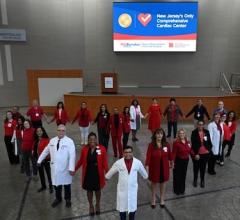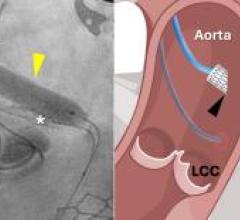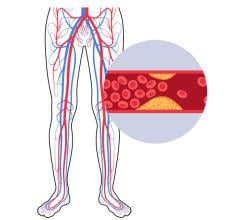May 3, 2011 – The U.S. Food and Drug Administration (FDA) has given 510(k) clearance to Maquet Cardiovascular’s Cardiohelp system as a cardiac and/or respiratory assist device for up to six hours. The system is the world's smallest portable heart-lung support system providing extracorporeal life support (ECLS) to replace or support a patient's circulation and respiration.
The product is expected to be commercially available in the United States later this year.
"Cardiovascular disease is the leading cause of death globally, with an estimated 17.5 million deaths each year," said Jeremy Cannon, M.D., trauma surgeon at Brooke Army Medical Center in San Antonio, Texas. "Many of these individuals experience cardiogenic shock because vital organs are not adequately supplied with oxygen. By quickly connecting a patient to a cardiopulmonary support system, the Cardiohelp System will allow clinicians to gain valuable time that could save the patient's life."
The system, which includes the HLS Advanced Tubing Set, is the first support system approved for both ground and air transportation. It is light enough to be carried by one person and compact enough to be transported in a helicopter or vehicle. With its disposables, integrated sensors and individual operating modes, it provides new options for patients whose heart and/or lungs are failing despite other treatment options.
"The need for immediate, mobile, compact, life-sustaining resuscitation occurs on a daily basis, both in and outside the hospital," said Linda Mongero CCP, perfusionist at New York Presbyterian Hospital. "Cardiohelp is a collective system of engineering that finally optimizes cardiopulmonary support in prime time."
The individual operating modes and disposables make it suitable for conditions in which cardiac and/or respiratory support is needed. The system offers several applications to support patients who require veno-venous life support or veno-arterial life support. It can also be used during open heart surgery and for extracorporeal carbon dioxide (CO2) removal up to six hours.
Veno-venous life support, or respiratory assistance for lung disorders, is primarily used when the heart is still able to pump blood through the circulatory system without any additional support, as in the case of acute respiratory failure or a massive pulmonary embolism. The blood is removed from the jugular vein or a femoral vein for enrichment with oxygen, after which it is returned to a vein.
Veno-arterial life support is used with patients whose hearts are not adequately supporting their circulation or have stopped, which may occur with a myocardial infarction. It is vital to ensure cardiopulmonary support as early as possible to prevent organ damage. The system can help increase survival by enabling revascularization by means of catheterization or cardiac surgery. In the case of a veno-arterial life support, the blood is removed from the right atrium or a femoral vein and is returned to the aorta or a femoral artery after oxygenation. Some of the blood therefore bypasses the heart in a parallel circulatory system, thus relieving stress on the heart muscle.
In severe cases of respiratory failure, it can be used to reduce the CO2 level in the blood. High CO2 levels (e.g., acidosis, pulmonary hypertension) in some cases can lead to complications, and some patients need low to normal CO2 levels to protect the brain.
Minimal extracorporeal circulation (MECC) with the system makes life support for cardiopulmonary support during open heart surgery less stressful for the patient than with a conventional heart-lung machine.
The system may be installed in ambulances or helicopters and can be connected to the on-board power supply. The integrated rechargeable battery also provides a minimum of 90 minutes of operation without an external power supply. It is operated via an easy touch screen with user guidance and a rotary knob to allow medical personnel with minimal life support experience to safely use the unit after suitable training.
It monitors important blood parameters, including venous oxygen saturation, hemoglobin, hematocrit and arterial and venous blood temperature. The complete sensor system, which also includes three pressure sensors, is integrated into the HLS Module Advanced disposable.
The system can be configured to capture case data and data recording intervals can be set individually from 3 seconds to 10 minutes.
For more information: www.maquet.com, www.getingegroup.com


 February 06, 2026
February 06, 2026 









